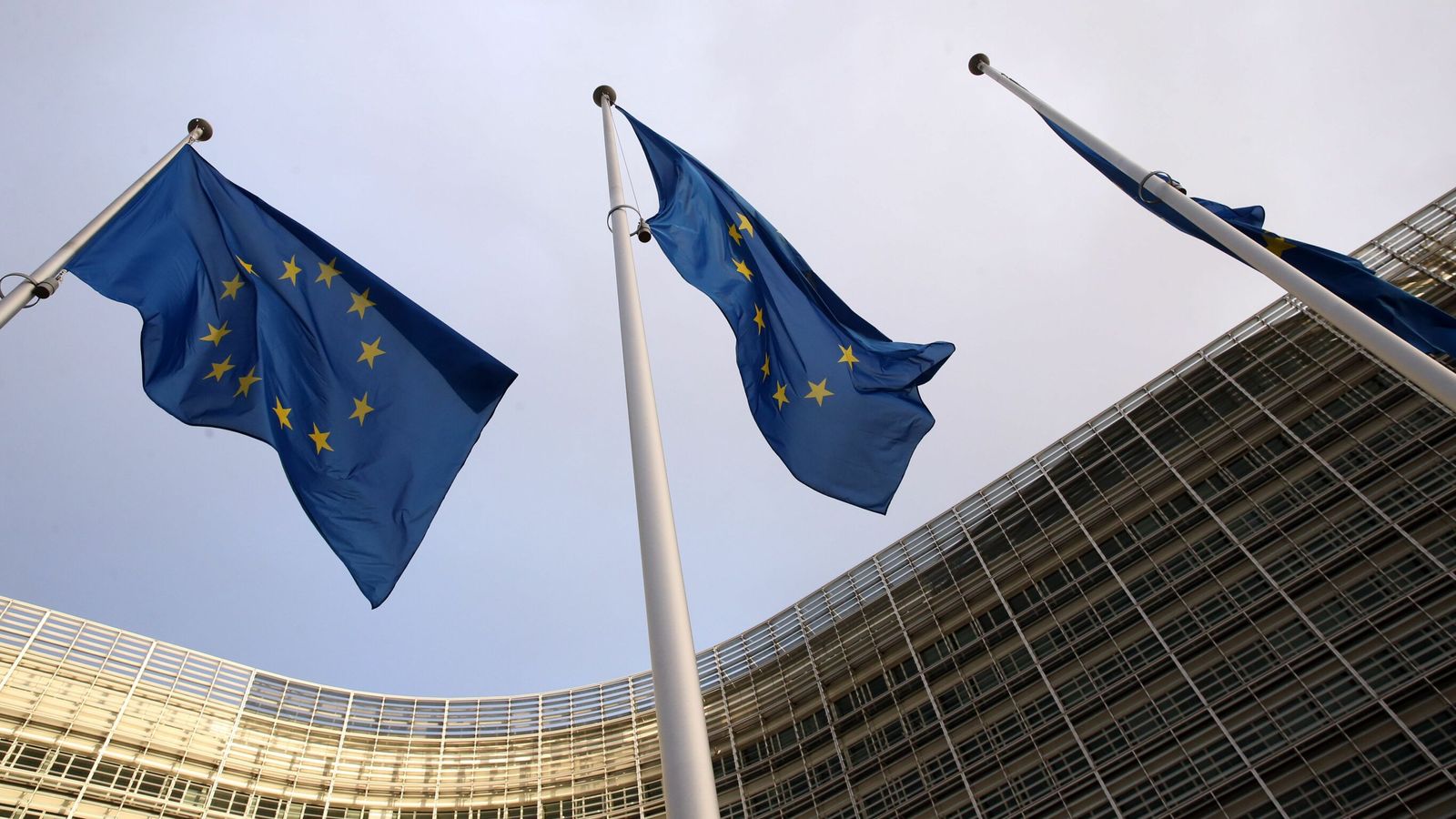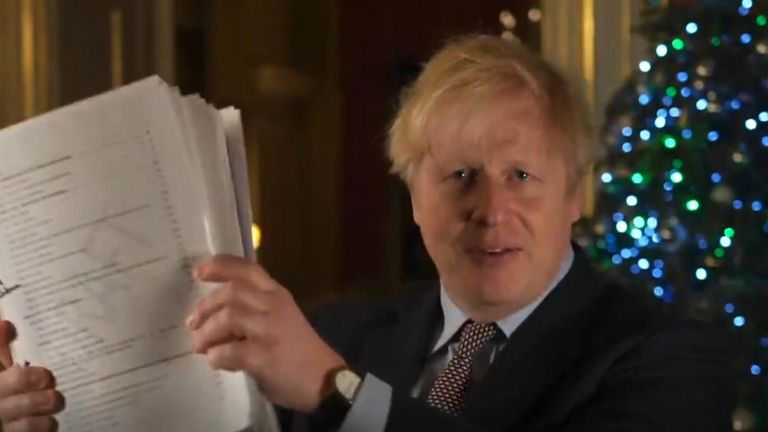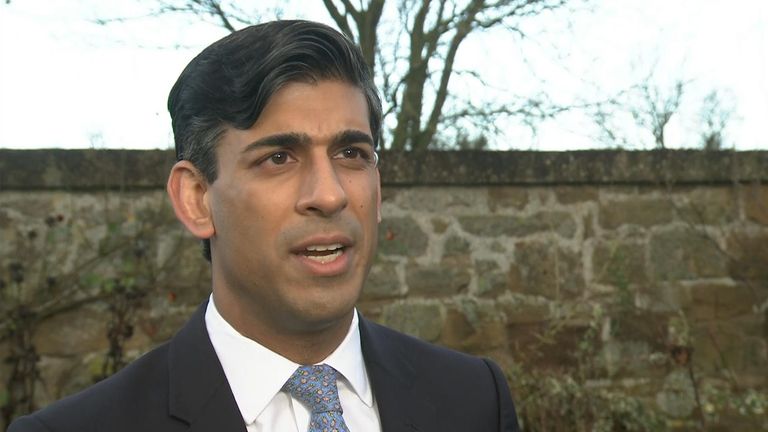EU officials are set to meet on Monday to discuss the Brexit trade deal agreed with the UK on Christmas Eve.
If the agreement, covering £660bn of trade, can be provisionally approved by EU ambassadors, it will then move on to formal ratification by the European Parliament.
The Brexit agreement will almost certainly be passed by the UK parliament, with Labour backing what it still says is a “thin” treaty as the alternative would be a chaotic no-deal situation on 1 January.
And Boris Johnson has said that, although he accepts that “the devil is in the detail” of the deal, he believes that it will stand up to inspection from sceptics such as the European Research Group (ERG) of Brexiteers.
“I believe we now have a basis for long term friendship and partnership with the Eu as sovereign equals,” the prime minister wrote in a WhatsApp message to MPs seen by Sky News.
“I know the devil is in the detail but I am sure this can survive the most ruthless and Talmudic scrutiny from the star chamber legal eagles.”
The so-called “star chamber” is a group of lawyers, led by veteran Eurosceptic MP Sir Bill Cash, tasked with examining the full text ahead of a Commons vote on 30 December.
The senior Conservative backbencher said “sovereignty is the key issue” as his team analysed the small print of the deal, with their verdict expected to be announced on Tuesday.
But while Mr Johnson will have the support of most of his party and Labour, the Scottish National Party (SNP) has confirmed that it will vote against the deal.
Ian Blackford, the SNP leader in Westminster, said on Sunday his party would vote against the “unforgivable act of economic vandalism and gross stupidity”.
It comes as the chief executive of the National Federation of Fishermen’s Organisation (NFFO), Barrie Deas, accused Mr Johnson of having “bottled it” on fishing quotas to secure only “a fraction of what the UK has a right to under international law”.
Mr Deas said the PM had “sacrificed” fishing to other priorities, with the subject proving to be an enduring sticking point during negotiations as they raced to get a deal by the end of the transition period on 31 December.
Remarking on the “frustration” felt within the fishing industry, Sky News political correspondent Joe Pike said many believed the government had “caved in” and “rolled over”.
EU fishing fleets will have their access to UK waters reduced by 25%, but it will happen gradually – over a transition period of five-and-a-half years. After that, quotas will be decided by annual negotiations.
And on financial services, Mr Johnson has acknowledged the treaty “perhaps does not go as far as we would like”.
But Chancellor Rishi Sunak said the nation will be able to “do things a bit differently” now, referencing new opportunities for the sector, and said the trade agreement should leave those anxious about the financial impact “enormously reassured”.
“I actually think this deal can represent an enormously unifying moment for our country and bring people together after the divisions of the past few years,” he said.
Shadow chancellor Anneliese Dodds told Sky News that while it was a “relief” that a deal had been secured, there was still a lot of concern among businesses.
“There will be people struggling to understand what this deal means for them – this is a real scramble for a lot of businesses to get ready for,” she said.


